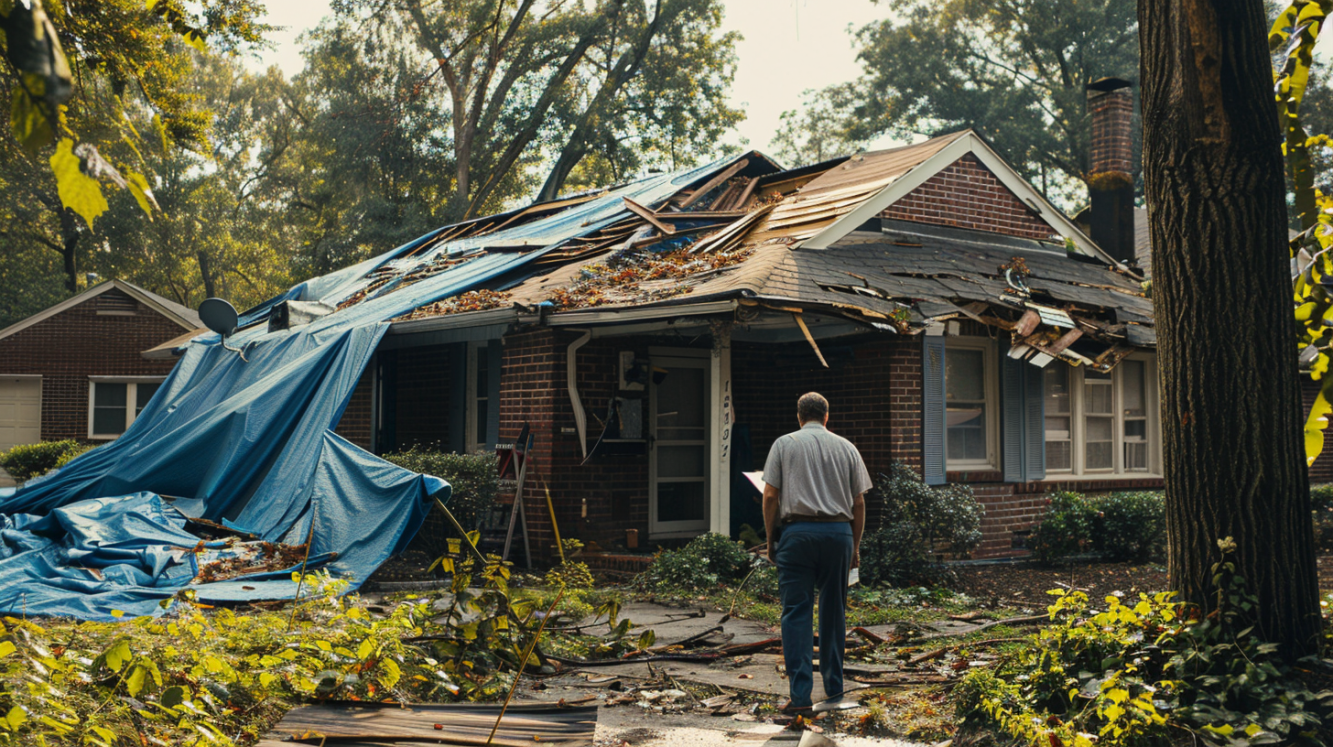HOA Insurance Claim Public Adjusters
How Can Public Adjusters Help With Homeowners Association Insurance Claims?
100% Contingency Based. We Don't Get Paid Unless YOU Get Paid!
Public adjusters for Homeowners Associations (HOA) provide expert representation and advocacy to homeowners associations, ensuring fair compensation for damages and losses in insurance claims.
With specialized skills in damage evaluation and understanding of complex insurance policies, they enhance negotiation outcomes and secure higher settlement amounts.
Their contingency fee structure aligns their compensation with settlement amounts, incentivizing them to achieve the best possible outcome for the HOA.
By engaging public adjusters early, HOAs receive thorough guidance, accurate documentation, and minimized disputes and delays. As the claims process unfolds, the value of experienced public adjusters becomes increasingly evident, leading to informed decision-making and ideal results.
- Public adjusters conduct thorough damage assessments, documenting every detail to strengthen water damage claims for homeowners.
- We handle all necessary paperwork and negotiations, ensuring timely submission and minimizing delays in the claims process.
- Public adjusters are experts in interpreting insurance policies, identifying coverage areas often overlooked by homeowners.
- Our strategic negotiation techniques help secure fair settlements that accurately reflect the true extent of losses.
- Hiring a public adjuster significantly increases the chances of obtaining higher compensation, providing peace of mind during recovery.
Request a Free Estimate
- Required Fields
*Some Services May Not Be Available In All Areas
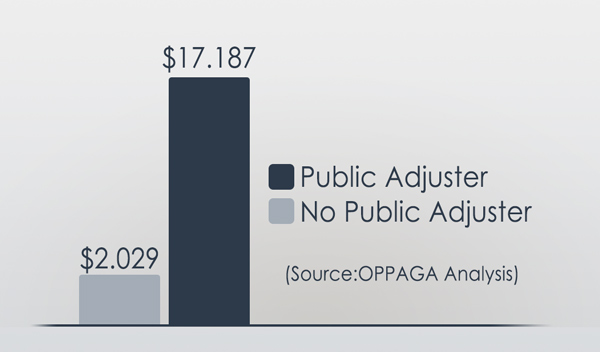
What Our Expert Homeowners Association (HOA) Public Adjusters Bring To The Table
Policy & Claims Specialists
Our experts have years of experience in claims & reviewing coverages. As such, we understand the numerous types of policies and endorsements. Our expertise allows us to find & utalize the various coverages your policy may have, and in many cases, inform you of coverage & clauses you may not even know about.
Advocacy
We advocate for your rights as the policy holder. We ensure that our clients’ rights are being protected throughout the claims process, and make sure you get all the benefits you are entitled to based on your policy. Our team of expert adjusters will be there with you every step of the way!
Experts In Seen & Unseen Damages
Our claims adjusters have years of experience identifying damage, and in most cases, come from professional construction, roofing, and insurance backgrounds. As such, we are able to find & isolate damages that you may not even know to look for, or know would/should be covered by your policy! We also incorporate the latest assessment techniques & technology when conducting our property inspections.
Expert Negotiators
Settlement negotiation is critically important when it comes to the claims process. We know how the insurance companies think, and come to the negotiation table fully prepared to make sure they know, that we know. Our expertise and experience in claims negotiations ensures that you get what you are actually entitled to under your policy ... not what the insurance company tells you that you are, based on their own interests. When the insurance company plays hardball or puts up a fight, we aren't afraid to get in that ring and fight them for what's rightfully yours!
Your Insurance Company Has An Adjuster ... Shouldn’t You?
Our Expert Public Adjusters Work Exclusively For You To Ensure You Get The Highest Settlement Possible From Your Property Insurance Claim After A Disaster.
Table of Contents
Key Takeaways
- Public adjusters represent homeowners associations exclusively, protecting their interests and ensuring fair compensation for damages.
- Public adjusters conduct thorough assessments of property damage, advocate for the association’s interests, and interpret complex insurance policy language.
- They simplify communication, empower HOAs to focus on recovery, and lead to higher settlement amounts through negotiations.
- Public adjusters manage timelines and documentation, ensuring fair compensation and reducing processing times through strategic negotiation.
- They help HOAs navigate complex claims, resolve disputes, and understand their rights and coverage details, maximizing potential settlement amounts.
Importance Of Expert Representation By Public Adjusters For HOA Insurance Claims
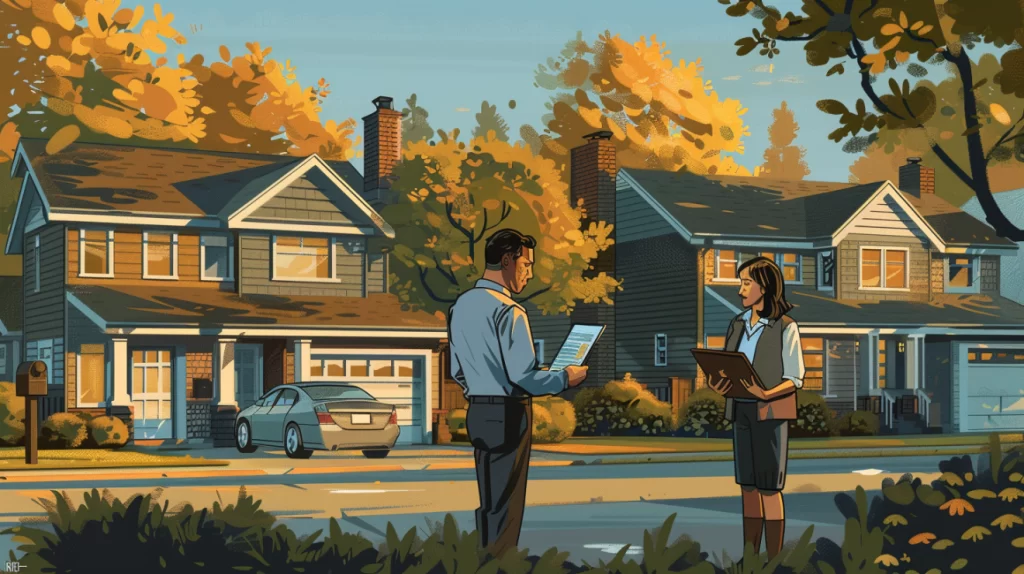
Expert representation by public adjusters is essential for homeowners associations traversing the complexities of insurance claims.
Unlike insurance company adjusters, public adjusters work exclusively on behalf of the HOA, ensuring that their interests are protected and maximized throughout the claims process.
By engaging a public adjuster, HOAs can leverage specialized expertise, enhance negotiation outcomes, and ultimately secure fair compensation for damages and losses.
Public Adjuster VS. Insurance Adjuster
The claims process for homeowners associations can be a minefield of complex policies and procedures, making it crucial for HOAs to navigate the nuances between public adjusters and insurance adjusters. A key distinction lies in their representation: public adjusters advocate for the HOA’s interests, while insurance adjusters are employed by the insurance company, potentially prioritizing the insurer’s interests over those of the policyholder.
This fundamental difference underscores the significance of expert representation by public adjusters. Public adjusters bring specialized expertise in evaluating damage and understanding complex insurance policies, enabling them to maximize potential claims for HOAs.
Their negotiation skills are essential in securing higher settlements than what insurance adjusters might offer. The contingency fee structure of public adjusters aligns their compensation with the settlement amount, motivating them to achieve the best possible outcome for the HOA.
By engaging a public adjuster early in the claims process, HOAs can guarantee thorough guidance, accurate documentation, and representation throughout the claim’s lifecycle, ultimately streamlining the claim process and optimizing settlement outcomes. This expert representation provides HOAs with a distinct advantage in insurance settlement negotiations.
Role Of Public Adjusters For HOA Insurance Claims Explained
As homeowners associations navigate the intricate process of filing insurance claims, the value of expert representation cannot be overstated. Public adjusters bring unparalleled expertise in claims strategy development, negotiation tactics training, documentation best practices, risk assessment techniques, and settlement optimization methods.
Key Roles of Public Adjusters in HOA Insurance Claims:
Through their extensive services, public adjusters empower homeowners associations to focus on community recovery and restoration, rather than the intricacies of the claims process.
- Thorough Assessments and Documentation: Conducting thorough assessments of property damage to guarantee all affected areas are documented for the claim, alleviating administrative burdens on HOA board members.
- Expert Representation: Advocating for the association’s interests during negotiations with insurance companies, leading to higher settlement amounts.
- Complex Policy Interpretation: Providing accurate interpretations of complex insurance policy language to maximize the potential for a complete settlement.
- Streamlined Communication: Simplifying communication between all parties involved to guarantee timely claim submissions and reduce disputes over coverage and damages.
Benefits Of Hiring A Public Adjuster For HOA Insurance Claims
When managing the complexities of homeowners association insurance claims, how can associations guarantee they receive fair compensation for damages?
Engaging a public adjuster can greatly enhance the claims process, providing numerous benefits for HOAs. One key advantage is expert negotiation, where public adjusters advocate for the association’s interests to secure fair and prompt settlements, minimizing disputes and delays.
Their policy interpretation expertise clarifies coverage details, empowering HOAs to understand their rights and protection.
When To Hire Public Adjusters For HOA Insurance Claims
Steering through complex insurance claims can be an intimidating task, especially for Homeowners Associations (HOAs) already dealing with the aftermath of a disaster or considerable damage.
This is where public adjusters come in, offering expert guidance to navigate the intricacies of insurance claims and policies. Knowing when to hire a public adjuster can make all the difference in the outcome of a claim.
Here are four critical scenarios where hiring a public adjuster can be most beneficial for HOAs:
- Large or complex claims: Public adjusters can greatly improve negotiation outcomes and expedite the resolution process for substantial or intricate claims.
- Early in the claims process: Engaging a public adjuster early on allows for thorough guidance, helping to navigate insurance policy nuances and coverage specifics.
- Disputes over coverage or damages: Public adjusters act as advocates to resolve disputes effectively, ensuring fair compensation for the HOA.
- Managing claim timelines and documentation: Public adjusters provide valuable expertise in managing claim timelines and ensuring detailed documentation, minimizing delays and maximizing settlement amounts.
How Public Adjusters Handle HOA Claim Delays
Effective claim management is essential for Homeowners Associations (HOAs) to minimize downtime and expedite community recovery following a disaster or significant damage.
Public adjusters play a crucial role in handling HOA claim delays by ensuring accurate and timely submission of necessary documentation, reducing the risk of prolonged processing times.
Their expertise in interpreting complex insurance language enables them to identify coverage specifics that can expedite claim processing and reduce uncertainty.
What Is HOA Insurance?
Homeowners Association (HOA) insurance is a specialized type of coverage designed to protect a community’s shared assets and interests.
HOA insurance requirements typically include coverage for common areas such as buildings, landscaping, and recreational facilities, as well as liability protection in the event of accidents or injuries within the community.
Understanding HOA insurance’s specific requirements and nuances is essential for ensuring that a community is adequately protected and prepared for potential risks and losses.
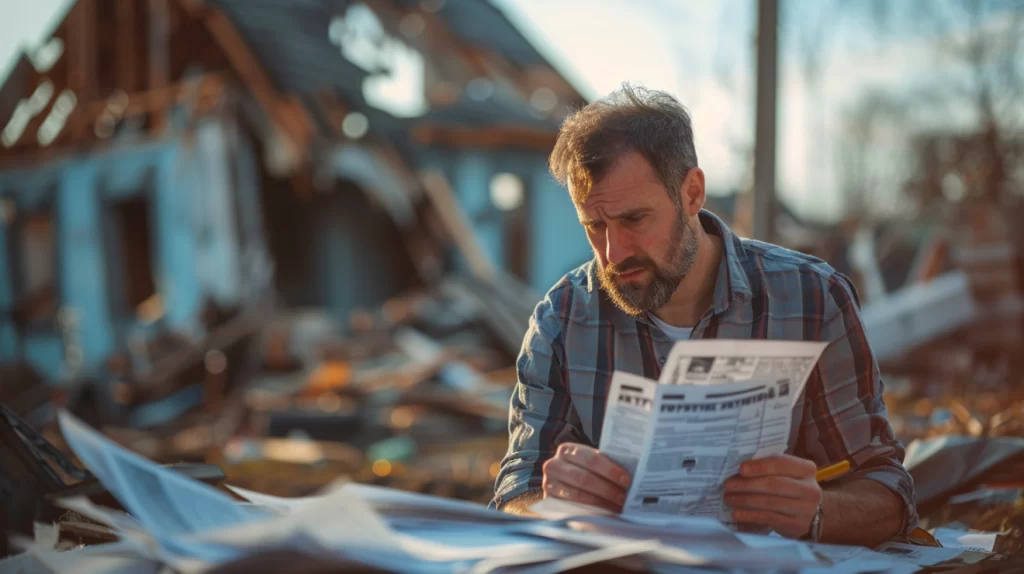
HOA Insurance Requirements
While traversing the complexities of managing a homeowners association can be challenging, understanding the insurance requirements is essential for protecting the community’s assets and financial well-being. As part of their governance and financial responsibilities, HOAs must maintain adequate insurance to protect the interests of all members.
Key HOA Insurance Requirements to Reflect:
- Master Insurance Policy: Determine the type of policy needed, such as bare walls, single entity, or all-in coverage, to guarantee adequate protection for unit owners and the association.
- Coverage Limits and Deductibles: Understand the community’s specific insurance needs, including coverage limits and deductibles, to guarantee effective claims management and risk mitigation.
- HOA Policy Limits: Regularly review and update policy limits to reflect community assets and liabilities changes.
- HOA Risk Assessment: Conduct regular risk assessments to identify potential threats and update insurance coverage accordingly.
Types Of Homeowners Association Insurance Policies

Homeowners associations typically utilize a range of insurance policies designed to protect common areas and individual units from various risks.
These policies, including the HOA Master Insurance Policy, HOA Special Assessment Insurance, HOA Hazard Insurance, HOA Fire Insurance, and HOA Extensive Property Insurance, offer distinct levels of protection and coverage.
Understanding the specifics of each policy type is essential for effective claims management and maximizing settlement outcomes in the event of damage or loss.
HOA Master Insurance Policy
Numerous complexities surround the management of homeowners association (HOA) insurance claims, particularly when it comes to maneuvering the various types of HOA master insurance policies available. Understanding the intricacies of these policies is essential for effective claims management and guaranteeing that all eligible damages are accounted for during the claims process.
To navigate these complexities, HOAs must consider the following key aspects of their master insurance policy:
- Coverage scope: Recognize the type of policy in place, including Bare Walls Coverage, Single Entity Coverage, or All-In Coverage, to determine what damages are covered and what falls under individual owner policies.
- Master policy implications: Identify potential coverage gaps between the master policy and individual owner policies to guarantee thorough protection.
- Liability disputes resolution: Establish clear guidelines for resolving disputes regarding damage responsibility between condominium owners and the association.
- Claims process navigation: Develop loss assessment strategies and guarantee proper documentation to maximize recovery for affected areas within the community.
HOA Special Assessment Insurance
Maneuvering the complexities of homeowners association (HOA) insurance policies is an intimidating task, particularly when it comes to special assessments for repairs or damage recovery. Understanding the nuances of HOA special assessment insurance is vital for effective claims management.
Special assessments often involve levying additional fees on homeowners to cover unexpected expenses or damages not included in the standard HOA master policy. Public adjusters can guide HOAs through the insurance claim process, ensuring that all parties comprehend their responsibilities and the potential financial implications.
To mitigate the financial burden of special assessments, HOAs must carefully evaluate their insurance coverage limits and options, such as Bare Walls Coverage, Single Entity Coverage, and All-In Coverage. Public adjusters play an important role in identifying areas where coverage may be lacking, allowing the HOA to revisit and revise their policy to prevent future financial struggles.
By providing expert guidance on HOA special assessments, public adjusters empower homeowners to navigate the complexities of insurance claims, ensuring a smoother recovery process for all parties involved. This professional support helps alleviate the emotional and financial strain associated with unexpected repairs or damage.
HOA Hazard Insurance
Frequently, the intricacies of HOA hazard insurance policies can be overwhelming for homeowners associations, particularly when it comes to managing the various types of coverage available. To navigate these complexities, it is crucial to understand the different types of HOA insurance policies and their implications for claims management.
The following types of HOA insurance policies are commonly used:
- Bare Walls Coverage: Protects the building structure but not individual unit contents.
- Single Entity Coverage: Includes the structure plus built-in fixtures.
- All-In Coverage: The most extensive option, covering all improvements and additions within the association.
- Loss Assessment Coverage: Provides financial support for damages that exceed the association’s master policy limits and may affect individual owners.
A thorough HOA risk assessment can help identify the most appropriate policy, taking into account factors such as HOA insurance premiums, policy exclusions, and claim documentation requirements. Effective HOA loss mitigation strategies can also be developed to minimize potential losses. By engaging with public adjusters, HOAs can guarantee proper documentation and advocacy for ideal settlements during the claims process.
HOA Fire Insurance
When it comes to protecting homeowners associations from the devastating effects of fire, selecting the right insurance policy is a vital consideration. HOA fire insurance policies offer varying levels of protection, and understanding the distinctions between them is essential for effective risk management strategies.
There are three primary types of HOA fire insurance policies: Bare Walls Coverage, Single Entity Coverage, and All-In Coverage.
Bare Walls Coverage: protects the building structure and common area fixtures.
Single Entity Coverage: includes built-in fixtures within individual units.
All-In Coverage: is the most extensive option, covering all improvements and additions within each unit.
Conducting a policy comparison analysis helps HOAs determine which policy best suits their needs. Public adjusters can facilitate this process, ensuring that the selected policy aligns with the association’s fire safety measures and unit owner responsibilities.
In the event of a fire, public adjusters can also guide HOAs through the insurance claim process, advocating for fair compensation and streamlining communication between parties.
By selecting the right policy and leveraging the expertise of public adjusters, HOAs can minimize the financial and emotional burden of a fire, ultimately fostering a sense of community and belonging among residents.
HOA Comprehensive Property Insurance
A homeowner association’s most valuable assets are often protected by extensive property insurance policies, tailored to address the unique needs of their community.
To navigate the complexities of these policies, public adjusters play an essential role in conducting thorough insurance policy analysis and providing a claims process overview. This expertise guarantees that associations understand their coverage limitations and can effectively manage risks.
There are four primary types of HOA insurance policies to evaluate:
- Bare Walls Coverage: Insures the structure and common area fixtures, excluding individual unit contents.
- Single Entity Coverage: Covers bare walls, common area fixtures, and built-in property fixtures within individual units.
- All-In Coverage: The most extensive option, covering all improvements and additions made within the association.
- Customized Policies: May include additional coverage options, such as earthquake or flood insurance, depending on the association’s specific needs.
HOA Comprehensive Liability Insurance
Numerous risks are associated with managing common areas in homeowners associations, making extensive liability insurance an important component of their risk management strategy. HOA broad liability insurance provides protection against various risks, including general liability, property damage, and director and officer liability coverage. Master policies typically cover common areas and shared facilities, while individual unit owners may need personal liability insurance for their units.
Different policy types, such as “Bare Walls Coverage,” “Single Entity Coverage,” and “All-In Coverage,” define the extent of coverage for physical structures and improvements within the community. Understanding coverage limits, risk assessment, and policy exclusions is essential for effective claims management. In the event of a claim, thorough claim documentation and loss mitigation strategies can help guarantee fair compensation.
Public adjusters play a significant role in maneuvering complex policies and claim processes, advocating for fair compensation and simplifying communication between all parties involved. By leveraging their expertise, public adjusters can help HOAs maximize settlement outcomes and focus on community recovery and restoration. Effective liability insurance coverage enables HOAs to mitigate risks and protect their assets, providing peace of mind for the community.
HOA Catastrophe & Natural Disaster Insurance
Some of the most critical risks that homeowners associations (HOAs) face are catastrophic events and natural disasters, such as hurricanes, wildfires, and floods, which can result in devastating property damage and loss of community assets. To mitigate these risks, HOAs invest in various insurance policies that provide different levels of protection for common areas and individual units.
Types of HOA Catastrophe & Natural Disaster Insurance:
- Bare Walls Coverage: Protects the structure and common area fixtures, excluding coverage for individual unit contents owned by residents.
- Single Entity Coverage: Builds on bare walls coverage by including built-in fixtures within units, offering more thorough protection for common areas and individual improvements.
- All-in Coverage: The most extensive option, covering all improvements and additions made within each unit, providing extensive protection for both the HOA and unit owners.
- Customized Policies: Some HOAs may opt for customized policies that address specific community needs and risks, such as flood or earthquake insurance.
HOA Worker's Compensation Insurance
When homeowners associations (HOAs) hire employees or rely on volunteers to maintain their communities, ensuring their well-being and safety becomes a top priority. To mitigate financial risks associated with workplace injuries, HOAs invest in worker’s compensation insurance. This type of insurance provides coverage for medical expenses, rehabilitation costs, and lost wages for injured workers.
The types of HOA worker’s compensation insurance policies vary, including coverage for full-time employees, part-time employees, and seasonal workers, ensuring thorough protection based on the workforce structure. Premiums for HOA worker’s compensation insurance are often based on factors such as the number of employees, the type of work performed, and the association’s claims history. HOAs must comply with state regulations regarding worker’s compensation insurance, which may mandate specific coverage requirements.
Public adjusters can help HOAs navigate the complex claims process, ensuring they receive fair compensation for injured workers. By understanding coverage options, policy limits, and injury prevention strategies, HOAs can create a safe and supportive work environment for their employees and volunteers, while minimizing financial risks and ensuring compliance with state regulations. Effective management of worker’s compensation insurance is essential for maintaining the well-being of the community.
HOA Directors & Officers (D&O) Liability Insurance
As homeowners associations navigate the complexities of risk management, they must also consider the personal liability of their board members. HOA Directors & Officers (D&O) Liability Insurance provides protection for board members against claims arising from wrongful acts, including breaches of duty, mismanagement, and errors in judgment while performing their roles.
Here are key aspects of D&O insurance policies that HOAs should consider:
- Coverage scope: Confirm the policy covers all board members, officers, and employees against various claims, including employment practices liability.
- Coverage limitations: Regularly review policy limits to confirm adequate protection, considering changes in the community’s governance structure or operations.
- Claim scenarios: Familiarize yourself with potential claim scenarios, such as allegations of mismanagement or breaches of fiduciary duty.
- Governance implications: Understand the governance implications of D&O insurance, including the importance of sound risk management strategies and transparent decision-making processes.
HOA Crime And Fidelity Insurance
How can homeowners associations safeguard their financial assets against dishonest acts or theft? One effective way is by investing in HOA crime and fidelity insurance. This type of insurance provides coverage for losses resulting from criminal activities, including theft of property or funds, and dishonest acts by board members or employees.
Fidelity audits can help identify potential vulnerabilities, while crime prevention measures can reduce the risk of losses. When considering HOA crime and fidelity insurance, associations should carefully review policy exclusions to guarantee thorough coverage. Insurance renewals also present an opportunity to reassess risk and adjust coverage accordingly. A thorough risk assessment can help identify areas where the association may be most vulnerable to financial losses.
By understanding the nuances of these insurance policies, HOAs can guarantee protection against potential financial losses due to crime or fidelity issues. Public adjusters can also play a vital role in maneuvering the complexities of these policies and advocating for fair compensation in the event of a claim.
Your Insurance Company Has An Adjuster ... Shouldn’t You?
Our Expert Public Adjusters Work Exclusively For You To Ensure You Get The Highest Settlement Possible From Your Property Insurance Claim After A Disaster.
What Does Homeowners Association Insurance Cover?
Homeowners Association (HOA) insurance coverage is designed to protect the community’s shared properties and common areas from various risks, including property damage and liability claims.
It is essential to understand the specifics of what HOA insurance covers, as it directly impacts the association’s financial responsibilities and potential liabilities.
Key areas of concern include water damage, roof leaks, and water drainage issues, which can significantly affect the community’s well-being and financial stability.
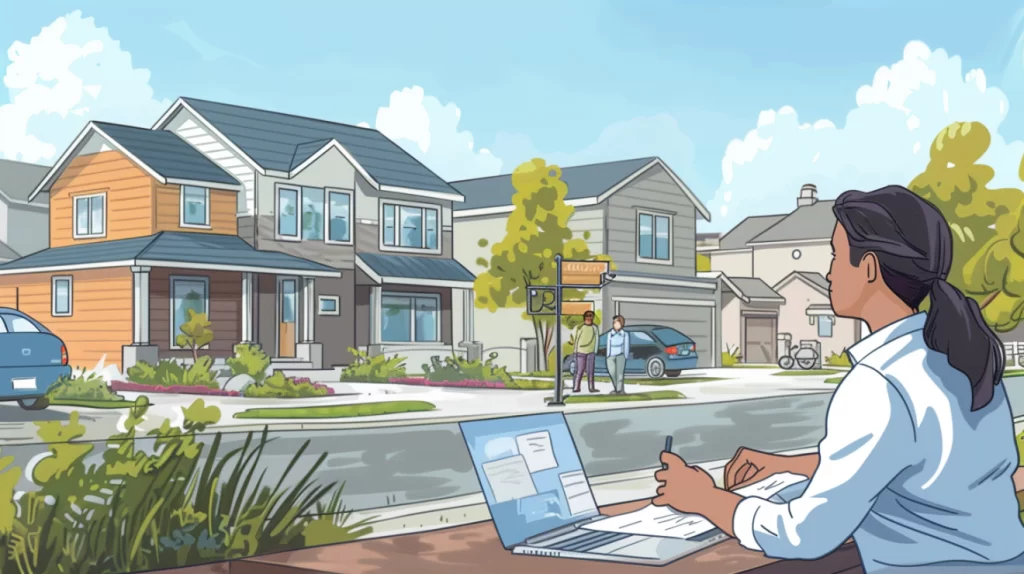
Does HOA Insurance Cover Water Damage?
When water damage strikes a condominium complex or community, one of the first questions that often arises is whether the Homeowners Association (HOA) insurance will cover the costs of repairs. The answer lies in understanding the specifics of the HOA’s insurance policies and coverage limits.
Generally, HOA insurance covers water damage that affects common areas, such as roofs, plumbing, and shared facilities. However, coverage may vary based on the type of master policy in place, including Bare Walls, Single Entity, or All-In coverage, each with differing responsibilities for damages within individual units.
Here are key considerations regarding HOA insurance coverage for water damage:
- Common area coverage: HOA insurance typically covers water damage in shared areas, including roofs, plumbing, and community facilities.
- Policy types and coverage limits: Different master policies have varying coverage limits and responsibilities for damages within individual units.
- Loss assessment coverage: HOA insurance policies often include loss assessment coverage to help cover shared costs related to water damage claims.
- Unit owner responsibilities: Individual unit owners are generally responsible for damage within their own units unless the damage originated from a common area. This highlights the importance of understanding both HOA and personal insurance policies.
Is HOA Responsible For Roof Leaks?
In the event of a roof leak, uncertainty about the responsible party for repairs often arises. Homeowners associations (HOAs) typically cover roof leaks under their insurance policies if the leak is related to common areas or structural components of the building, depending on the type of master policy in place.
The HOA’s insurance policy type, such as “bare walls,” “single entity,” or “all-in,” delineates responsibility for repairs and roof leak liability. Individual unit owners may need to rely on their own insurance policies for coverage of roof leaks that originate from their unit or personal property.
To determine responsibility, it is vital to review the HOA’s governing documents and insurance policy. HOAs are responsible for maintaining common elements, including roofs, and must guarantee timely repairs to prevent further damage and liability. Disputes regarding roof leak liability can arise, necessitating a clear understanding of the HOA’s insurance coverage and the specific terms outlined in the governing documents.
Public adjusters can play a significant role in claim dispute resolution by interpreting policy terms and facilitating communication between parties. By understanding roof leak liability, HOAs and unit owners can work together to resolve claims efficiently and effectively.
Is HOA Responsible For Water Drainage?
Damaged landscapes and flooded buildings are just a few examples of the costly consequences of inadequate water drainage systems in homeowners association (HOA) communities. The responsibility for water drainage issues often falls to the HOA, particularly if the problem arises from the failure to maintain common areas, including drainage systems. However, the extent of this responsibility can vary based on the HOA’s governing documents.
To better understand the complexities surrounding water drainage in HOAs, consider the following key factors:
- Drainage system maintenance: The HOA is typically responsible for maintaining common areas, including water drainage systems. Regular maintenance is essential to prevent costly repairs and damages.
- HOA liability issues: The HOA may be liable for damages resulting from inadequate drainage system maintenance. However, liability may also depend on external drainage factors beyond their control.
- Coverage documentation significance: Thorough documentation of incidents and damages is vital to support claims and determine responsibility in accordance with the HOA’s insurance policies.
- Homeowner responsibilities: Homeowners may need separate coverage for damage to their personal property, emphasizing the importance of understanding the scope of their individual insurance policies.
What Repairs Are HOA Responsible For?
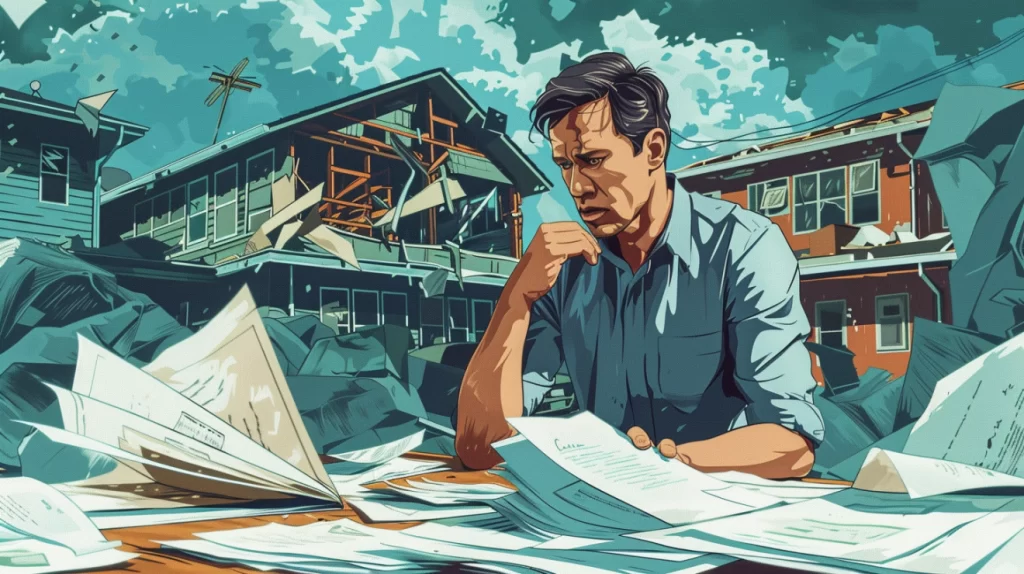
When it comes to repairs, the homeowner’s association (HOA) is responsible for numerous aspects of a community’s shared spaces.
Specifically, HOAs are typically responsible for maintaining and repairing common areas such as buildings, pools, and landscaping.
The extent of these responsibilities can depend on the type of master insurance policy held by the HOA, including Bare Walls Coverage, Single Entity Coverage, or All-In Coverage.
HOAs must prioritize proper maintenance and repair of structural components, including roofs and exterior walls, to guarantee compliance with their insurance policies.
Repairs related to liability claims, such as injuries occurring in common areas, fall under the HOA’s responsibility due to potential negligence in maintenance. Effective management of these responsibilities requires a clear understanding of the division of labor between the HOA and individual unit owners.
By recognizing their repair responsibilities, HOAs can better manage insurance claims and maintain a safe, well-maintained community for their residents. Public adjusters can provide valuable guidance in steering through these complexities and guaranteeing that necessary repairs are addressed.
Understanding Homeowners Association Insurance Claims
Understanding Homeowners Association (HOA) insurance claims can be challenging, particularly for board members and property managers who already shoulder numerous responsibilities.
To navigate these complex claims effectively, it is essential to recognize common misconceptions about HOA insurance coverage, carefully review the policy before filing a claim, and anticipate potential challenges in the claim process.
By clearly understanding these factors, HOAs can better manage the claims process, including handling loss assessment claims and adhering to their bylaws, ultimately ensuring a smoother recovery from unexpected events.

Common Misconceptions
The intricacies of homeowners association (HOA) insurance claims often lead to misunderstandings among homeowners. One of the primary sources of confusion is the extent of coverage provided by the HOA’s master policy. Homeowners may assume that all types of damages are covered, but in reality, the coverage can vary considerably.
Some common misconceptions about HOA insurance claims include:
- Assuming extensive coverage: Many homeowners mistakenly believe that HOA insurance policies cover all types of damages, when in fact, the extent of coverage depends on the type of master policy in place.
- Overestimating control over the claims process: Individual homeowners often think they have complete control over the claims process, but claims must often be initiated and managed by the HOA’s board.
- Underestimating documentation challenges: Homeowners may underestimate the complexity of documenting damages required for HOA claims, which can lead to delayed or denied claims.
- Believing personal property is covered: Many residents assume that the HOA’s insurance will cover personal property losses, but typically, individual unit owners must carry their own insurance policies to protect personal belongings. Understanding these misconceptions highlights the importance of adjuster necessity in guiding the claims process.
Reviewing Policy Before Claim Filing
Clarity is key when guiding through the complexities of homeowners association insurance claims. Before filing a claim, it’s essential for HOAs to thoroughly review their master insurance policy to grasp the specifics of their coverage, including bare walls, single entity, or all-in coverage. A clear understanding of loss assessment coverage is also crucial, as it may vary depending on the type of damage and policy provisions.
Reviewing the policy helps identify exclusions or limitations that could affect the claim process, such as specific perils covered or deductible amounts. HOAs should document their property and maintenance history, as this information may be required to substantiate damages. Familiarizing themselves with the claims process outlined in the policy can help HOAs prepare necessary documentation and timelines for successful claim submission.
Effective claim documentation tips, understanding policy exclusion implications, deductible assessment strategies, and maintenance history importance all play a critical role in guiding the claims process. By prioritizing policy review and loss assessment clarification, HOAs can guarantee a smoother and more successful claims experience.
Common Challenges In The Claim Process
Homeowners associations maneuvering the complexities of insurance claims often encounter a multitude of challenges that can hinder their ability to secure fair settlements. These challenges can be overwhelming, especially when dealing with the aftermath of a disaster or major property damage.
Some common challenges that HOAs face in the claim process include:
- Claim documentation challenges: Gathering and organizing the necessary documentation to support a claim can be time-consuming and require significant resources.
- Coverage disputes resolution: Disputes may arise over the interpretation of policy terms, the assessment of damages, and the adequacy of settlement offers, requiring expert assistance to guarantee fair resolutions.
- Policy language clarification: The complexity of insurance language and policy terms can hinder HOAs from effectively steering their claims.
- Repair delays impact: Time-consuming processes associated with claims can delay necessary repairs and recovery efforts, impacting the community’s overall satisfaction and property values.
These challenges highlight the importance of seeking professional assistance to steer the claims process and guarantee fair settlements that meet the needs of the community.
Handling HOA Loss Assessment Claims
Maneuvering the intricacies of loss assessment claims can be a intimidating task for homeowners associations, as it requires a deep understanding of master policies and the distinction between coverage for common areas and individual owner policies. To navigate these complexities, HOAs can benefit from the expertise of public adjusters, who can help identify common claim pitfalls and develop effective documentation strategies.
Thorough records, including maintenance history and property inspections, are critical for supporting claims during the loss assessment process. Public adjusters can also facilitate understanding of coverage limits, guaranteeing that claims submissions accurately address policy specifics. Additionally, their specialized negotiation skills enable them to maximize settlement amounts, securing necessary funds for repairs and replacements.
By engaging a public adjuster, HOAs can streamline communication between all parties involved, keeping members informed throughout the claims process. Effective HOA member communication is essential, as it helps to build trust and guarantees a smooth recovery process. By leveraging the expertise of public adjusters, HOAs can overcome the challenges of loss assessment claims and focus on community restoration.
Importance Of Understanding HOA Bylaws
A vital component of managing homeowners association insurance claims is a thorough understanding of the governing bylaws. These bylaws outline the responsibilities of the association and individual homeowners regarding insurance coverage for common areas and personal property.
Familiarity with the bylaws can help prevent disputes during claims and guarantee that everyone is informed and compliant.
The following key aspects of HOA bylaws are essential for effective claim management:
- Bylaw Enforcement and Compliance: Understanding the process for enforcing bylaws and guaranteeing compliance can help resolve insurance disputes and facilitate smooth claim processing.
- Homeowner Responsibilities: Knowing the responsibilities of individual homeowners regarding insurance coverage can prevent misunderstandings and guarantee that all parties are aware of their obligations.
- Claim Processing Procedures: Familiarity with the procedures for processing insurance claims can help streamline the process and reduce delays.
- Coverage Limits and Loss Assessment: Understanding the coverage limits and loss assessment provisions in the bylaws can help homeowners navigate complex insurance issues and advocate for fair treatment during the claims process.
Your Insurance Company Has An Adjuster ... Shouldn’t You?
Our Expert Public Adjusters Work Exclusively For You To Ensure You Get The Highest Settlement Possible From Your Property Insurance Claim After A Disaster.
01.
Learn more about what our expert public adjusters can do for your residential insurance claims!
02.
Learn about what our expert public adjusters can do for your commercial insurance claims!
03.
Learn about what our public adjusting roofing specialists can do for you & your roofing claims!
04.
Insurance adjusters work for THEM, our public adjusters work for YOU! Here’s how …
The Homeowners Association Insurance Claim Recovery Process
Our licensed public adjusters are fluent in “Insurance Policy Jargon”, and will guide you through the entire property insurance claims process, while we fight to make sure you get the highest compensation possible for your claim!
Step #1
Make Sure Your Family Is Safe
When disaster strikes, the priority is to make sure your family is safe. Always have an emergency bag!
Step #2
Contact Our Public Adjusters
Contact one of our expert certified public insurance adjusters to schedule an appointment for us to come out & meet with you to inspect the damage.
Step #3
Thorough Review Of Your Policy
One of our claims specialists will conduct a comprehensive review of your policy, note any coverage restrictions, coinsurance requirements, limitations, and review additional options that may be available to you.
Step #4
Create A Claims Strategy That Works For Your Specific Goals & Needs
We’ll discuss what is most important to you when it comes to your claim, then create & tailor the right claims strategy to take care of your family.
Step #5
We Take Care Of All Insurance Related Paperwork, Negotiations, & Follow Up.
Once we have agreed on a strategy, our specialists will:
- Meet with insurance company adjusters & personnel at the loss/damage location.
- Agree to the scope of damages & make sure that they are including all the damages in the scope, as well as clearly deciding on what should be repaired vs. replaced.
- Prepare a detailed reconstruction estimate.
- Prepare a detailed inventory of personal property.
Step #6
Negotiations & Final Settlement
Our expert claim negotiators will work to make sure you receive the highest settlement possible under your specific insurance policy.
Step #7
Restoration | Reconstruction | Relocation
We negotiate with the insurance company to ensure that you can achieve your specific goals. Whether that’s full or partial restoration, rebuilding your property, or a full-relocation.
Your Insurance Company Has An Adjuster ... Shouldn’t You?
Our Expert Public Adjusters Work Exclusively For You To Ensure You Get The Highest Settlement Possible From Your Property Insurance Claim After A Disaster.
FAQ
What Is A Public Claims Adjuster?
Imagine a public claims adjuster as the conductor of a symphony, orchestrating the harmonious blend of your insurance claim. Here at EastBay Adjusters, we specialize in steering through the complex world of insurance claims with finesse and expertise.
Just like a maestro leading a symphony, we skillfully guide your residential, commercial, or roofing insurance claim to a successful resolution.
- A public claims adjuster is like a skilled navigator, charting the course of your claim through turbulent waters.
- They are the guardian of your interests, ensuring that you receive fair and just compensation for your damages.
- Like a master craftsman, they meticulously piece together the puzzle of your claim, leaving no detail overlooked.
- A public claims adjuster is a beacon of light in the darkness of insurance complexities, guiding you towards a favorable outcome.
- They are the steadfast ally by your side, fighting tirelessly on your behalf to secure the best possible settlement.
At EastBay Adjusters, we recognize the importance of feeling supported and protected during the claims process. Join our community of satisfied clients who have found a sense of belonging and peace of mind in our expert care. Let us be your trusted partner in the journey towards a fair and just resolution for your insurance claim.
What Do Public Adjusters Do?
At EastBay Adjusters, we serve as the bridge between you and your insurance company, ensuring that your claims process flows smoothly like a river finding its way through a rocky terrain.
- Like skilled navigators, we guide you through the intricate maze of insurance policies and procedures.
- Just as expert craftsmen, we meticulously assess damages to your property with precision and care.
- Similar to diligent detectives, we uncover every detail to maximize your insurance claim.
- Much like trusted advisors, we provide support and reassurance every step of the way.
- Like loyal companions, we stand by your side to fight for the compensation you deserve.
When you choose EastBay Adjusters, you’re not just a client – you’re a valued member of our community. Let us help you navigate the complex world of insurance claims with ease and expertise.
Will My Settlement Be Larger If I Hire a Public Adjusting Company?
In most cases, yes, hiring a public adjusting firm can result in considerably larger settlement amounts, with recent studies showing a 800% higher settlement amount for policy holders who used a public adjuster.
At EastBay Adjusters, we recognize that maneuvering through insurance claims can feel like treading through a stormy sea. We are here to safely guide you through those choppy & confusing waters, and make sure you get what you are truly legally entitled to.
3 reasons why hiring a public adjusting company like EastBay Adjusters can lead to a larger settlement for your insurance claim:
- Expert Guidance: Our team of experienced public adjusters will navigate the complex waters of insurance claims on your behalf. We are experts when it comes to the ins-and-outs of the industry, and will guarantee that you receive the maximum settlement you deserve.
- Protecting Your Interests: We work tirelessly to make certain that your rights are upheld, and that you are not taken advantage of by the insurance company. Remember, the adjuster assigned to you by the insurance company is there to protect the insurance company’s interets, while a public adjuster is there to protect your interests.
- Maximizing Your Settlement: We will work diligently to maximize your settlement. Our expertise in evaluating damages, negotiating with insurance companies, and advocating for your rights will result in a larger settlement than if you were to navigate the claims process on your own.
So, if you’re wondering whether hiring a public adjusting company will lead to a larger settlement, the answer is a resounding yes nearly every time! Let EastBay Adjusters be the guiding light that leads you to a successful resolution of your insurance claim.
How Much Do Public Adjusters Charge?
Public adjuster fees varry by state, but typically range from 10%-20% of the total insurance settlement, depending on various factors such as the complexity of the claim and the adjuster’s experience. However, fees can go up to 30% for major or catostrophic claims that reqire months of work, and in most cases, an entire team of senior adjusters to be put on the case due to it’s complexity.
This fee structure is designed to align the interests of the adjuster and the policyholder, incentivizing public adjusters to maximize the settlement amount.
3 factors that influence the percentage charged by a public adjuster, include:
Claim Complexity: More complex claims, such as those involving extensive property damage or multiple types of losses, often warrant higher fees due to the extensive additional work, time, & team members required.
Experience and Reputation: Adjusters with a proven track record and significant experience may command higher fees, reflecting their expertise in guiding the claims process effectively.
Negotiation Skills: Skilled negotiators can secure higher settlements, justifying potentially higher fees based on the value they provide to the policyholder.
Understanding these fee structures is essential for policyholders considering hiring a public adjuster. It is important to weigh the potential benefits against the costs. For many, the expertise and advocacy provided by a public adjuster can lead to a substantially higher settlement, ultimately making the fee a worthwhile investment.
As you evaluate your options, consider not only the percentage but also the value of the services offered, ensuring you select a public adjuster who aligns with your needs and expectations.
How Are Public Adjusters Paid?
At EastBay Adjusters, we recognize the importance of clarity when it comes to payment for our services. As public adjusters specializing in residential, commercial, and roofing insurance claims, we aim to provide transparent and fair compensation structures for our clients.
Here’s A Breakdown Of How Public Adjusters Are Typically Paid:
- Contingency Fee Agreement:
This is the most common payment method used by public adjusters. Under a contingency fee agreement, the adjuster’s fee is contingent upon successfully negotiating a higher settlement for the client.
The fee is usually a percentage of the final settlement amount, typically ranging from 5% to 20%. This guarantees that our interests are aligned with yours, as we only get paid if we secure a better outcome for you.
- Hourly Rate:
Some public adjusters may opt to charge an hourly rate for their services. This method involves billing the client for the actual time spent working on the claim, whether it’s conducting inspections, gathering documentation, or communicating with the insurance company. While this may offer more transparency regarding billing, it can also lead to uncertainty about the total cost of the services provided.
- Fixed Fee:
In some cases, public adjusters may offer a fixed fee for their services. This means that the client pays a set amount for the adjuster’s assistance, regardless of the final settlement amount. This can provide predictability concerning costs, but it may not always align the adjuster’s interests with the client’s, as there is no incentive to negotiate a higher settlement.
At EastBay Adjusters, we believe in the power of a contingency fee agreement to guarantee that our clients receive the best possible outcome. Our goal is to maximize your insurance claim settlement while providing exceptional service every step of the way. Contact us today to learn more about how we can assist you with your insurance claim needs.
When Should You Hire A Public Adjuster?
When faced with the overwhelming task of maneuvering through insurance claims for your residential, commercial, or roofing property, it’s vital to reflect on when to bring in a professional public adjuster. At EastBay Adjusters, we recognize the complexities of insurance policies and the importance of maximizing your claim settlement.
Here are three key signs that indicate it’s time to hire a public adjuster:
- Overwhelmed with Documentation: If you find yourself drowning in paperwork, receipts, and policy details, it may be time to seek assistance. A public adjuster can help organize and streamline the documentation process, making certain that nothing is overlooked or missed.
- Disputed Claim Amounts: When the insurance company offers a settlement that seems inadequate or undervalued, it’s important to have a public adjuster on your side. They can negotiate on your behalf to secure a fair and accurate claim amount that reflects the true extent of your damages.
- Complex Claims Process: Insurance claims can be intricate and time-consuming, especially when dealing with multiple parties or extensive damage. A public adjuster can simplify the process, acting as your advocate and guiding you through each step to guarantee a successful outcome.
Remember, at EastBay Adjusters, we’re here to support you through every stage of your insurance claim. Reach out to us when you’re ready to experience the peace of mind that comes with expert guidance and support.
Can I Hire a Public Adjuster After Filing My Claim?
Yes, you can hire a public adjuster after claim filing. They’ll assist you in guiding insurance negotiations, ensuring you receive a fair settlement. Their expertise can greatly impact the outcome of your claim.
When Is It Too Late To Hire a Public Adjuster?
As the saying goes, ‘Better late than never’ – but when it comes to hiring a public adjuster, timing can be vital.
- Have you found yourself knee-deep in insurance claim paperwork after experiencing property damage?
- Are you feeling overwhelmed by the insurance claim process?
- Do you wish there was someone who could help you navigate through the complexities of filing a claim?
At EastBay Adjusters, we recognize the challenges that come with dealing with insurance claims for residential, commercial, or roofing damage. Our team of experienced public adjusters is here to help you every step of the way. Whether you’re just starting the claims process or feeling stuck in the middle, it’s never too late to reach out to us for assistance.
Imagine having someone by your side who knows the ins and outs of the insurance industry, someone who can advocate for you and guarantee that you receive the compensation you deserve. That’s where EastBay Adjusters comes in.
Don’t wait until it’s too late – contact us today and let us help you navigate the often confusing world of insurance claims. With EastBay Adjusters, you’ll never have to face the process alone.
How Long Does the Claims Process Usually Take With a Public Adjuster?
When you’re in the thick of it, the claims timeline can feel endless. With an adjuster’s involvement, you’ll navigate the process smoother, often reducing wait times and ensuring you get what you deserve faster.
Why should you hire a Public Adjuster if your insurance company has already assigned you an adjuster?
When your insurance company assigns you an adjuster, it’s crucial to understand that their loyalty lies with the company. In contrast, our licensed public adjusters are solely committed to representing you and your interests. This distinction is especially critical in cases of natural disasters like hurricanes.
Here’s why you should consider hiring a public adjuster:
- Advocacy: Our public adjusters act as your advocates in insurance claims, making sure that your best interests are prioritized.
- Increased Settlements: Studies show that claims managed with the help of a public adjuster result in settlements that are 700% higher for hurricane-related claims and over 500% higher for non-catastrophe-related claims compared to those negotiated directly between the policyholder and the insurance company.
- Expertise: Having a skilled public adjuster on your side can greatly influence the outcome of your insurance claim, leading to more favorable settlements.
- Peace of Mind: With a dedicated professional handling your claim, you can have peace of mind knowing that your interests are being actively pursued throughout the process.
The effectiveness and significance of hiring a public adjuster are clear. Don’t settle for less when it comes to your insurance claims – choose EastBay Adjusters to guarantee you get the best possible outcome.
Can I File My Insurance Claim Myself?
Filing an insurance claim on your own can be done, but it’s essential to contemplate if it’s the best choice. Insurance policies are often complicated and filled with jargon that can be difficult to grasp. This complexity might lead to misunderstandings or errors that could harm your claim.
Our expert Public Adjusters can assist you. They are industry professionals with the expertise and experience to effectively handle insurance policies and claims. Each team member comprehends the nuances of insurance documents and can smoothly guide you through the entire claims process.
With their expertise, EastBay Adjusters can advocate for you, ensuring your claim is presented in the best light possible. They excel at identifying and articulating the details of your claim that might otherwise be overlooked.
Their professional support can greatly impact the outcome of your claim, potentially resulting in a more favorable settlement compared to handling it on your own.
Although you have the choice to file a claim independently, due to the complexity of insurance policies and the potential for better outcomes, it is highly recommended to seek the assistance of our skilled and experienced Public Adjusters. Their expertise can be an essential asset in maneuvering through the claims process and achieving the best possible result.
3 Reasons To Choose EastBay Adjusters:
- Expertise in residential, commercial, and roofing insurance claims.
- Professional assistance in maneuvering insurance policies effectively.
- Advocacy for a more favorable settlement outcome.
Can My Contractor Represent Me Against My Insurance Company?
As a policyholder, it is vital to understand why your contractor cannot represent you against your insurance company. Our team of licensed Public Adjusters are the only professionals authorized to advocate for policyholders in the insurance claim process. This unique role allows them to work solely on your behalf, guiding you through the complexities of insurance claims with expertise and legal backing.
In Texas, it is illegal for contractors to act as public adjusters. This rule is strictly enforced to uphold the integrity of the insurance claim process and safeguard policyholders from potential conflicts of interest or unethical behavior. If you come across a contractor posing as a public adjuster, it is your right and duty to report this violation to the Texas Department of Insurance.
When reporting such misconduct, it is important to provide substantial evidence to support your claim. Solid proof is key to enabling the Texas Department of Insurance to investigate and address the issue effectively, ensuring compliance with the laws governing the conduct of public adjusters and contractors. By taking action, you play a part in maintaining a fair and lawful insurance claim environment, protecting your interests and those of other policyholders in Texas.
- Trust in our licensed Public Adjusters to represent you with expertise and legal authority.
- Uphold the integrity of the insurance claim process by reporting violations promptly.
- Provide concrete evidence to support your claim and enable effective investigation.
- Contribute to a fair and lawful insurance claim environment for all policyholders in Texas.
I Already Settled My Claim, But It Wasn’t Enough Money To Cover The Damages. Is It Too Late To Try To Get More Money?
If you settled your claim but didn’t receive enough money to cover the damages, it’s not too late to try and get more. Our team of expert Public Adjusters can help, even if the damage occurred within the past five years. We offer a free review of your claim to see if you’re eligible for additional compensation.
During this evaluation, our skilled Public Adjusters will carefully examine every detail of your original claim. They will assess the damage, your coverage, and how the claim was handled previously. This review aims to identify any areas where you were under-compensated or where there were oversights leading to the denial of your claim.
If our review shows you deserve more money, we will take action. Our team will negotiate with your insurance company on your behalf, using our expertise to guarantee you get what you’re owed. We recognize insurance policies and the tactics used by insurance companies, empowering us to fight for your rights and secure a fair outcome.
Our goal is to reduce the stress of dealing with insurance claims, especially if you feel mistreated by your insurance provider. We provide professional guidance and support throughout the process, working to get you the compensation you deserve. Don’t lose hope if your claim was initially underpaid or denied; our expert Public Adjusters are here to fight for you.
Can My Insurance Company Cancel My Contract If I Use a Public Adjuster?
No. Under existing laws and ethics that regulate the insurance industry, it is your LEGAL RIGHT to hire a certified public adjuster. Canceling your contract for excercising your right, would be considered a violation & is illegal. An insurance company cannot terminate your policy if you hire a public adjuster.
Your Insurance Company Has An Adjuster ... Shouldn’t You?
Our Expert Public Adjusters Work Exclusively For You To Ensure You Get The Highest Settlement Possible From Your Property Insurance Claim After A Disaster.
Get The HIGHEST & Most FAIR Settlement Amount Possible From Your HOA Property Damage Claim!
Get a free on-site inspection & insurance policy evaluation from one of our expert public claims adjusters!
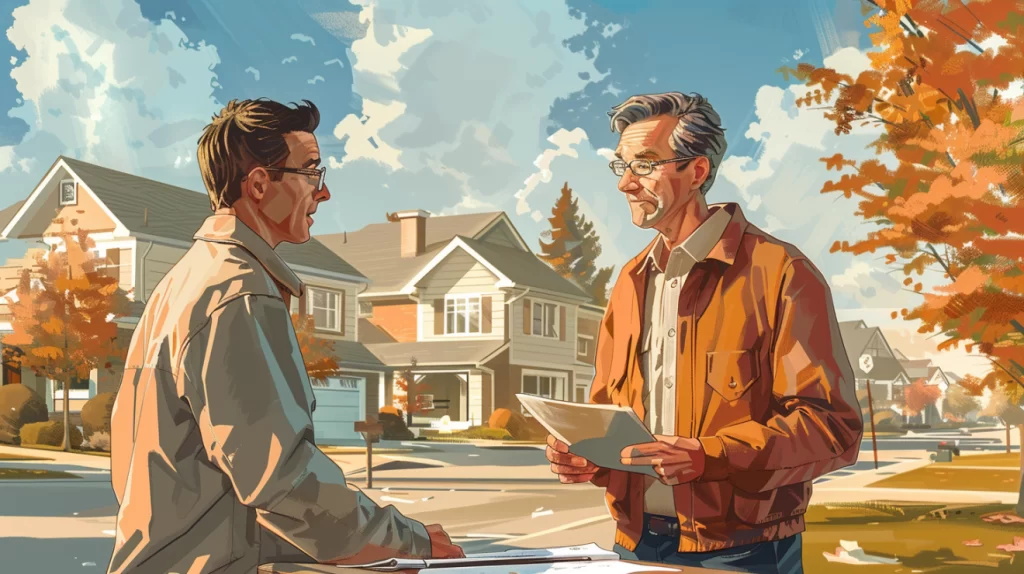
Work with public insurance claim adjusters who are licensed, bonded, and trained to handle all residential or commercial insurance claims, big or small! Our public insurance adjusters’ technical and detailed expertise has satisfied countless homeowners, business owners, condominium management companies, and HOAs.
Our team of experts have years of experience dealing with insurance companies. Many of our public adjusters also have previous backgrounds in construction, giving us a significant advantage in quickly securing the most compensation for our clients. We know what to look for, what repairs actually cost, and what the insurance company’s adjusters tend to ignore (and hope you don’t know about!).
Our inspections are free, and we are 100% contingency-based, meaning we only get paid if you do!
We take pride in maintaining superior customer service and providing clear and friendly communication. Contact us to speak with one of our expert adjusters today!
Your Insurance Company Has An Adjuster ... Shouldn’t You?
Our Expert Public Adjusters Work Exclusively For You To Ensure You Get The Highest Settlement Possible From Your Property Insurance Claim After A Disaster.
5 Tips For Filing Homeowners Association Insurance Claims
Public Adjusters For Homeowners Association Insurance Claims

Learn how Homeowners (HOA) Association public adjusters can simplify your HOA insurance claims process, and maximize your compensation, ensuring higher settlement opportunities.
Service Type: Public Adjusters For Homeowners Association Insurance Claims
Price: 10-20%
Currency: USD
Your Insurance Company Has An Adjuster ... Shouldn’t You?
Our Expert Public Adjusters Work Exclusively For You To Ensure You Get The Highest Settlement Possible From Your Property Insurance Claim After A Disaster.
